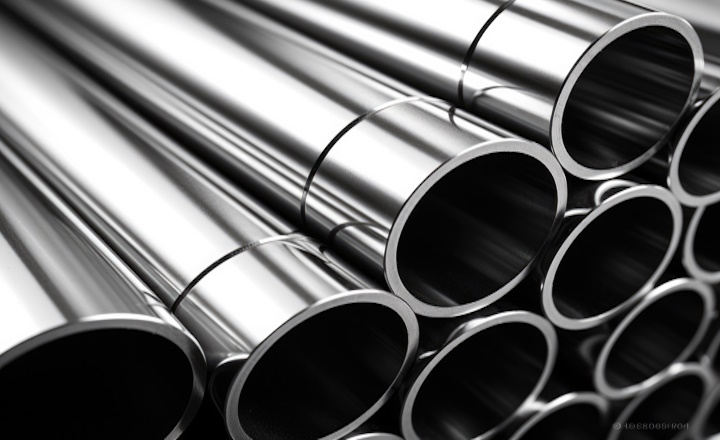
Hard chrome plating is a metal finishing process widely used across various industries to enhance the durability and performance of components. By depositing a thick layer of chromium onto the surface of metal parts, this technique significantly improves wear resistance, corrosion protection, and surface hardness. It is a critical process for extending the life of machinery and equipment subjected to harsh operating conditions.
What Is Hard Chrome Plating?
Hard chrome plating involves electroplating a layer of chromium onto a metal substrate, typically steel or iron. Unlike decorative chrome plating, which is mainly for aesthetic purposes and is thin, hard chrome plating uses a much thicker layer. This thickness ranges from several microns to over a hundred microns, depending on the application.
The process is performed by immersing the component in a chromium-containing electrolyte bath and passing an electric current through it. This causes chromium ions to deposit evenly on the metal surface, creating a hard, dense coating.
Key Benefits of Hard Chrome Plating
One of the primary advantages of hard chrome plating is its exceptional hardness. The chromium layer is extremely resistant to abrasion and wear, making it ideal for parts exposed to friction and heavy use. This results in longer service life and less frequent replacement of critical components.
In addition to wear resistance, hard chrome plating offers excellent corrosion protection. This is especially important for parts used in harsh environments, such as marine equipment, chemical plants, and oil and gas machinery. The chromium layer acts as a barrier that prevents rust and chemical damage.
Another benefit is the ability of hard chrome plating to restore worn parts. Instead of replacing expensive machinery components, companies can recoat them with chromium to return them to original specifications. This repair capability saves costs and reduces downtime.
Applications of Hard Chrome Plating
The versatility of hard chrome plating means it finds use in many industries. In manufacturing, it is commonly applied to hydraulic cylinders, shafts, pistons, and molds. These parts require smooth surfaces with high resistance to wear and corrosion.
Automotive and aerospace industries rely on hard chrome plating for engine components, landing gear parts, and other elements that experience extreme mechanical stress.
In the oil and gas sector, hard chrome plating protects drill bits, pumps, and valves exposed to abrasive and corrosive fluids.
Even in everyday equipment like printing rollers and machine tools, the process improves performance and durability.
Environmental and Safety Considerations
While hard chrome plating offers many advantages, it also requires careful handling due to the chemicals involved. Chromium plating baths contain hexavalent chromium, which is hazardous to health and the environment. Modern plating facilities follow strict regulations and employ advanced filtration and waste treatment systems to minimize risks.
Efforts are ongoing to develop safer alternatives and improve the sustainability of plating processes without compromising quality.
Choosing a Hard Chrome Plating Service Provider
Selecting the right provider for hard chrome plating is crucial to ensure the quality and reliability of the finished product. Experienced plating companies use advanced equipment to control layer thickness, adhesion, and surface finish.
They also offer additional services such as grinding and polishing after plating to achieve precise dimensions and smooth surfaces. This is especially important for components that require tight tolerances.
Reliable suppliers work closely with clients to understand their specific needs and recommend suitable plating thicknesses and treatments.
Maintenance and Care of Hard Chrome Plated Parts
Although hard chrome plating enhances durability, maintaining plated components properly extends their lifespan. Regular cleaning and inspection help detect early signs of damage or wear.
Avoiding exposure to harsh chemicals not compatible with chromium and ensuring lubrication where needed can prevent premature failure.
Conclusion
Hard chrome plating remains a vital process in industries demanding high-performance, long-lasting metal components. Its ability to protect against wear and corrosion, restore worn parts, and maintain precise dimensions makes it an invaluable finishing technique.
Whether used in heavy machinery, automotive parts, or specialized equipment, hard chrome plating improves reliability and reduces maintenance costs. Choosing an experienced plating provider and understanding the process ensures that components meet the highest standards for durability and performance.
If you are seeking to enhance your equipment’s resilience or repair critical parts, exploring hard chrome plating solutions could be the key to greater efficiency and longer service life.
| < Prev | Next > |
|---|







